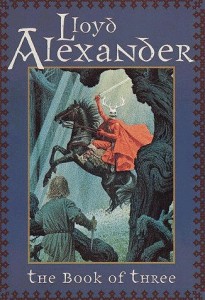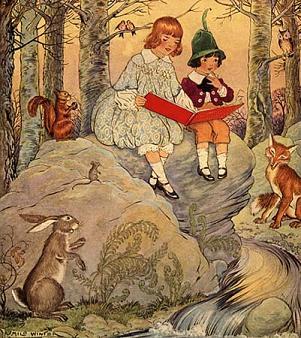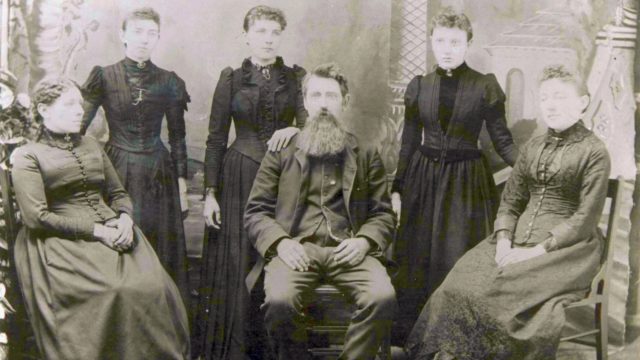The Book of Three
 On the way home from church today, my youngest daughter informed me that her pencil was stuck, point-first, through the “leather” (plastic) of the car door. When I asked her how it happened, she said, “It was an accident. I didn’t know it was that strong!”
On the way home from church today, my youngest daughter informed me that her pencil was stuck, point-first, through the “leather” (plastic) of the car door. When I asked her how it happened, she said, “It was an accident. I didn’t know it was that strong!”
Later, it was determined that my husband had shut the car door on the pencil, which was sticking out in that direction. Any visions of my daughter jamming her pencil full-force into the door were erased, and the penalty — no more pencils in the car — was lifted.
“Mommy, when you were thinking it was my fault, it was like giving someone an apple pie, then someone taking it, then having it turn out that it wasn’t a thief,” Younger Daughter reflected.
“No, it was like handing them a toad. Or like turning the other way when someone’s about to walk into a hole,” offered Older Daughter.
“Huh?” I said. “Maybe we should clean up and have some crunchings and munchings!”
We owe such conversations to The Book of Three, in which a chatterbox named Eilonwy is always making novel comparisons to explain her feelings, and the ape-like Gurgi speaks of “crunchings and munchings,” “whackings and smackings,” “seekings and peekings” and “fightings and smitings.” I guess it’s obvious that this read-aloud got under our skin!
I’ve read it twice before, once when I was around middle school age, and once about two years ago. It’s the first of five chronicles set in a fictitious medieval realm, inspired by Wales, called Prydain. It was fun to read it aloud. There is a rollicking (Chaucerian?) feel to it, thanks to the exaggerated characterizations, and this keeps the tension under control. In a nutshell, it traces the adventures of an assistant pig-keeper, Taran of Caer Dallben, who sets out on a quest to recover his escaped oracular pig and ends up head-to-head with the forces of evil that threaten the kingdom. He collects an odd set of companions: Gwydion the wandering king, Flewddur Flam the bard, Gurgi the ape-man, and Eilonwy the princess. Over the course of their adventures he does some growing up and manages to become a hero.
Lloyd Alexander has said, “In our times, every fantasy realm must be measured in comparison with Narnia.” But this tale is more indebted to The Lord of the Rings. It includes a dark lord who has thrown an enchantment over the land, an evil king with a troop of semi-living thralls like Tolkien’s ring-wraiths, and an unlikely “fellowship” on a quest full of dangers. My 8-year-old liked it more than my 5-year-old. Maybe it’s because she’s old enough to appreciate one of the central attractions of the story, stated by Lloyd Alexander in his author’s note at the start:
The chronicle of Prydain is a fantasy. Such things never happen in real life. Or do they? Most of us are called on to perform tasks far beyond what we can do. Our capabilities seldom match our aspirations, and we are often woefully unprepared. To this extent, we are all Assistant Pig-Keepers at heart.


